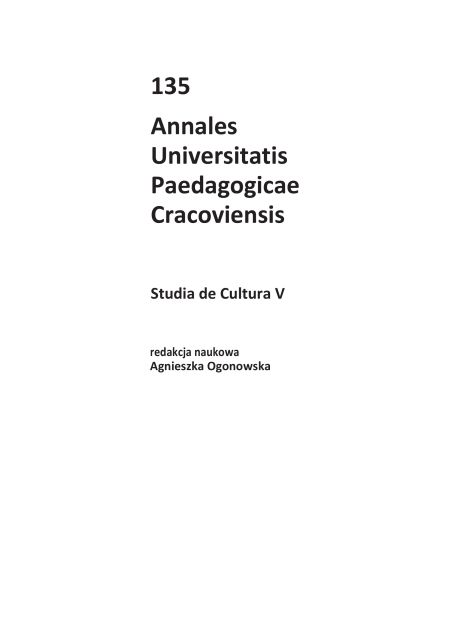Abstract
Transmedial “self”: the performative subject in a relation with culture
The author discusses the performative production of identity by the reception of films, theatre and installation art space. The author emphasizes the transgressive way of participation in cyberspace. Modernist, “locating” aesthetics (Racławice Panorama, Wrocław) is shown in contrast to the aesthetics of the performative spectacle of W. Ziemilski’s Prolog (Ochota Theatre, Warsaw 2011). Reception of the Racławice Panorama and the Prolog is presented in the context of postmodern identity construction. Its ontic foundation appears to be the transmedial I arising in the course of daily interaction with culture, both in the reality and the virtual space.
References
Borowski M., Sugiera M. (2007), Nowe media/nowe rzeczywistości, [w:] Oblicza realizmu, red. M. Borowski, M. Sugiera, Kraków.
View in Google Scholar
Dobroczyński B. (2000), Transpersonalna koncepcja tożsamości, [w:] Tożsamość człowieka, red. A. Gałdowa, Kraków.
View in Google Scholar
Fischer-Lichte E. (2008), Estetyka performatywności, przeł. M. Sugiera, M. Borowski, Kraków.
View in Google Scholar
Gergen K.J. (2007), Nasycone Ja. Dylematy tożsamości w życiu współczesnym, przeł. M. Marody, Warszawa.
View in Google Scholar
Grau O. (2003), Virtual Art. From Illusion to Immersion, przeł. G. Custance, Cambridge–London.
View in Google Scholar
Jenkins H. (2008), Kultura konwergencji. Zderzenie starych i nowych mediów, przeł. M. Bernatowicz, M. Filiciak, Warszawa.
View in Google Scholar
Kluszczyński R.W. (2008), Doświadczenie – pamięć – tożsamość. Doświadczenie medialne jako fundament hybrydycznej tożsamości, [w:] Nowoczesność jako doświadczenie. Dyscypliny – paradygmaty – dyskursy, red. A. Zeidler-Janiszewska, R. Nycz, Warszawa.
View in Google Scholar
Kluszczyński R.W. (2010), Sztuka interaktywna. Od dzieła- instrumentu do interaktywnego spektaklu. Warszawa.
View in Google Scholar
Kosiński D. (2007), Bądź realistą – żądaj niemożliwego. O tzw. realizmie w aktorstwie teatralnym, [w:] Oblicza realizmu, red. M. Borowski, M. Sugiera, Kraków.
View in Google Scholar
Kubiński G. (2008), Narodziny podmiotu wirtualnego. Narracja. Dyskurs. Deixis, Kraków.
View in Google Scholar
Markowski M.P. (2007), Polska literatura nowoczesna. Leśmian, Schulz, Witkacy, Kraków.
View in Google Scholar
Melosik Z. (2007), Teoria i praktyka edukacji wielokulturowej, Kraków.
View in Google Scholar
Reeves B., Nass C. (1996), The media equation: how people treat computers, television, and new media like real people and places, Chicago.
View in Google Scholar
Rosińska Z. (2001), Blaustain. Koncepcja odbioru mediów, Warszawa.
View in Google Scholar
Tylikowska A. (2000), Teoria dezintegracji pozytywnej Kazimierza Dąbrowskiego. Trud rozwoju ku tożsamości i osobowości, [w:] Tożsamość człowieka, red. A. Gałdowa, Kraków.
View in Google Scholar
Vattimo G., Paterlini P. (2011), Nie być Bogiem. Autobiografia na cztery ręce, przeł. K. Kasia, Warszawa.
View in Google Scholar
Ziemilski W. (reż.) (2011), Prolog, prem. X 2011, Teatr Ochota, Warszawa/KRT.
View in Google Scholar

